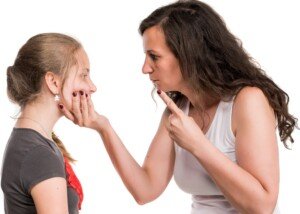
Is there really harm from verbal or non-physical bullying, or is this just a lot of hype and overreaction?
It’s funny how the people, who sneer at the complaints by victims, often were either:
1) once bullied themselves but one day punched out the bully and any subsequent one, or
2) were never bullied and instead were either the bully or were neither victim nor perpetrator.
Relentless, ongoing harassment is not the same as occasional “teasing.”
Nor does chronic rejection and insults from one’s classmates toughen up the victim and make them a better person — even though some victims, in adulthood, claim that all the bullying taught them how to be more compassionate towards others.
“There are significant negative short- and long-term consequences for bullies and victims,” says Rashmi Shetgiri, MD, MSHS, medical director at Pediatric Primary Care Clinic in Los Angeles whose research interests include bullying and youth violence prevention.
“Victims of bullying may experience anxiety, depression, poor school performance, school avoidance, and complaints such as headaches, abdominal pain, bedwetting, and difficulty sleeping.”
Things that happen to someone in childhood (which includes the high school years) can literally shape the brain and permanently impact the mind and thought processes, including how that person feels towards other human beings.
“Long-term consequences may include low self-esteem, dropping out of school, and psychosocial problems as adults,” says Dr. Shetgiri.
Why is this so difficult for some people to understand?
Think about it: During your formative years, when your psyche is being constructed, you’re continuously exposed to classmates who taunt you, say ugly things to you, exclude you, laugh at you, complain when you’re assigned to work with them in a group, etc.
By the time you graduate, you’ll be feeling like a total loser.
Now how is this going to motivate you to reach out to other human beings?
The fear of being despised for just sharing the same room with someone will constantly be looming.
Years of asking yourself, “Why does everyone make fun of me?” has a way of permanently damaging one’s self-esteem and social skills.
If you still believe that the negative impact of non-physical bullying is way overblown, imagine trying to adjust to a workplace in which many of your coworkers are constantly heckling you about your clothes, religion, skin color, body type, the way you walk, talk, etc.
Imagine that every time you slip up on the job, several coworkers loudly jeer at you and call you foul names. You wouldn’t last there a week and you know it. Or, you’d sue!
“One study of school shootings in the 1990s found that almost 20% of perpetrators of these shootings had been bullied,” says Dr. Shetgiri.
If just one racial slur on the job in the adult workplace should not be tolerated, how dare anybody insist that years of being mistreated in the school setting is just a normal part of growing up?
It’s the “bully-victims, children who are both bullied and bully others, who are at the greatest risk for problems that may include depression, anxiety, substance use, and disengagement from school,” says Dr. Shetgiri.
 Dr. Shetgiri is particularly interested in prevention of violence among Latino youth, the implementation of primary-care-based bullying and violence prevention strategies, and health outcomes for children exposed to violence and abuse.
Dr. Shetgiri is particularly interested in prevention of violence among Latino youth, the implementation of primary-care-based bullying and violence prevention strategies, and health outcomes for children exposed to violence and abuse.
 Lorra Garrick has been covering medical, fitness and cybersecurity topics for many years, having written thousands of articles for print magazines and websites, including as a ghostwriter. She’s also a former ACE-certified personal trainer.
Lorra Garrick has been covering medical, fitness and cybersecurity topics for many years, having written thousands of articles for print magazines and websites, including as a ghostwriter. She’s also a former ACE-certified personal trainer.
.









































